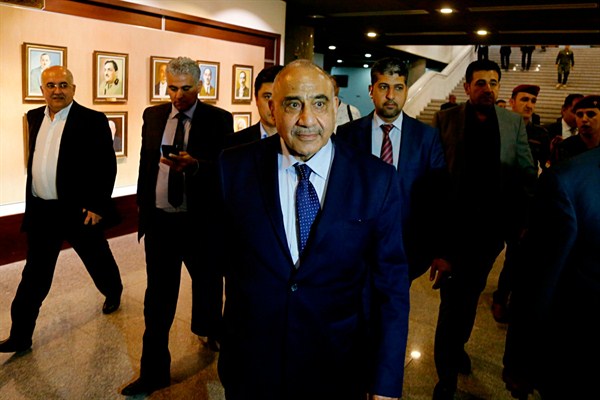In May 2018, Iraqis went to the polls to vote for their new government. The vote was significant in some ways, in particular due to poor turnout. Iraqis seemed to be sending a message to the country’s political elite that it was time to turn the page on Iraq’s party and government system put in place for the past 15 years. But the elections were inconclusive in terms of delivering a parliamentary majority to any single party or bloc, and represented more than anything else an indictment of the political elite that has governed Iraq since the fall of Saddam Hussein.
After a long and drawn-out process that lasted until October, leaders of the major political blocs finally filled the three so-called presidency posts in Baghdad: prime minister, president and parliamentary speaker. The selection of Adel Abdul-Mahdi, an economist who had previously served as vice president and oil minister, as prime minister seemed promising for those who hoped for a new era in Iraqi politics.
However, since then, Abdul-Mahdi has faced difficulties in forming his Cabinet and has been unable to assert his influence vis-à-vis the major political parties that put him in power. Many commentators in Iraq claim that Abdul-Mahdi is more of a thinker than a doer, and he has written of an ambitious plan to reform the government. Rather than take a strong position to form his Cabinet, Abdul-Mahdi’s plan, according to his inner circle, is to pursue gradual change from within, fighting against the so-called deep state symbolized most visibly by the “muhassasa” system, whereby political parties have distributed deputy minister and director positions based on an ethno-sectarian quota.

